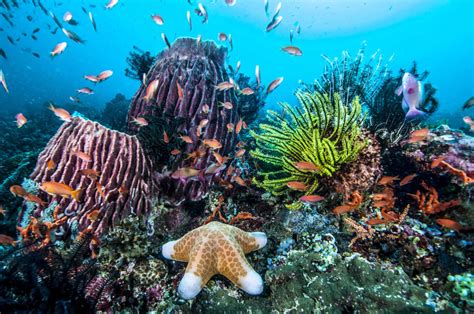Embark on an extraordinary journey into the realm of marine life by pursuing a marine biology degree. Discover the world beneath the waves and become a steward of our oceans.

Why Marine Biology Matters
The vast expanse of our oceans holds untold wonders and plays a crucial role in Earth’s ecosystems. Marine biologists are the guardians of these marine environments, tackling pressing issues such as:
- Climate change and ocean acidification
- Pollution and habitat destruction
- Overfishing and sustainable aquaculture
- Conservation of endangered species
Benefits of a Marine Biology Degree
A degree in marine biology opens doors to a world of possibilities:
- Research and Discovery: Pursue innovative research projects, unveil new species, and contribute to scientific advancements.
- Conservation and Management: Work towards protecting marine ecosystems, restoring habitats, and managing fisheries.
- Education and Outreach: Inspire future generations about the importance of ocean conservation.
- Aquaculture and Biotechnology: Develop sustainable aquaculture practices, create new bioproducts, and develop conservation strategies.
Degree Requirements: The Key to Success
Earning a marine biology degree requires a solid foundation in science and a passion for the marine environment. Most universities offer a variety of courses to prepare students for this field:
Core Courses:
| Course | Description |
|---|---|
| Biology I & II | Fundamentals of cell biology, molecular genetics, and evolution |
| Chemistry I & II | Inorganic and organic chemistry, including laboratory experiments |
| Physics | Principles of physics, mechanics, and thermodynamics |
| Calculus | Differential and integral calculus |
Marine Biology Courses:
| Course | Description |
|---|---|
| Introductory Marine Biology | Overview of marine ecosystems, biodiversity, and adaptations |
| Oceanography | Physical and chemical properties of the oceans, currents, and waves |
| Marine Ecology | Interactions between marine organisms and their environment |
| Marine Conservation | Conservation strategies, biodiversity loss, and sustainable practices |
Electives:
| Course | Description |
|---|---|
| Ichthyology | Study of fishes, their anatomy, physiology, and behavior |
| Marine Mammalogy | Cetaceans, seals, sea lions, and their conservation status |
| Biological Oceanography | Biological processes in marine ecosystems |
| Aquaculture | Sustainable aquaculture practices, species selection, and disease management |
Research and Fieldwork:
| Experience | Description |
|---|---|
| Research Internship | Conduct research under the guidance of a faculty member |
| Field Course | Study marine organisms and ecosystems in their natural habitats |
| Independent Study | In-depth exploration of a specific marine biology topic |
Applications and Innovation: Beyond the Classroom
A marine biology degree unlocks a world of opportunities to contribute to ocean conservation and scientific advancements. Here are a few innovative applications of marine biology:
- Bioprospecting: Discover novel compounds and enzymes from marine organisms for medicinal applications.
- Ocean Exploration: Utilize submersibles and remotely operated vehicles to explore uncharted waters.
- Marine Biotechnology: Develop sustainable aquaculture practices, create biofuels, and produce biomaterials.
- Ocean Restoration: Restore degraded marine habitats through coral reef regeneration and invasive species management.
- Climate Change Mitigation: Implement strategies to reduce carbon emissions, protect coastal ecosystems, and adapt to rising sea levels.
FAQs: Your Questions Answered
Q: What are the career opportunities for marine biologists?
A: Marine biologists can work in research institutions, government agencies, conservation organizations, and private industries.
Q: What is the job market like for marine biologists?
A: According to the Bureau of Labor Statistics, the median annual salary for zoologists and wildlife biologists (which includes marine biologists) is $64,100. The job outlook is expected to grow by 11% from 2020 to 2030.
Q: What are the key skills needed to succeed as a marine biologist?
A: Strong science background, analytical skills, field research experience, communication skills, and a passion for the marine environment.
Q: Can I pursue a marine biology degree online?
A: Yes, some universities offer online marine biology programs or courses.
Q: What is the difference between marine biology and oceanography?
A: Marine biology focuses on the study of marine organisms, while oceanography focuses on the physical, chemical, and geological aspects of oceans.
Q: How can I prepare for a marine biology degree?
A: Take science courses in high school, volunteer at a marine science organization, and participate in extracurricular activities related to the ocean.
